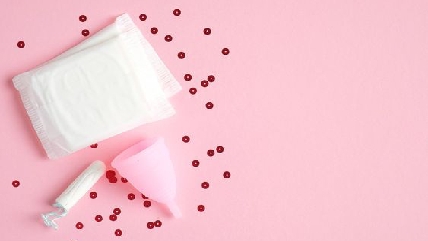
What is mensuration or periods?
Menstruation is normal vaginal bleeding that occurs as part of a woman's monthly cycle. The onset of menstruation is a sign that a female body is prepared for normal reproductive function.
What is menarche?
Menarche is the occurrence of the first menstrual period. It usually starts between the age of 11 and 14 and continues until menopause at about age 51. The length of a normal menstrual cycle is around 24-38 days with bleeding around 4-7 days. It is the result of the interaction between various hormones, that is the hypothalamic, pituitary, and ovarian hormones
How does mensuration happen?
When ovulation is not followed by fertilization, the endometrium sheds its functional layer. The process is called mensuration.
Does a girl undergo physiological changes at the age of menarche?
Yes. Physiological changes occur at the age of menarche.
- Generally, the first experience would be fear, shame, or embarrassment
- Pain and severe cramps
- Heaviness in the lower abdomen
- Hygiene issues, infection
- Anemia due to heavy bleeding
- Lethargy
What are the factors that affect the pattern of the period cycle?
- Genetic factors
- Age of menarche
- Nutrition
- Race, Geographical location, and Environmental conditions
- Health status, Psychological factors
- Body Mass Index (BMI)
- Socio economic status
- Education and occupation of parents
- Loss of parents
- Child sexual abuse
- Physical stress and Smoking
What is the Indian scenario about periods?
- About 50% of girls in India know nothing about their period until they start their periods
- Only 18% of women of menstruating age have access to sanitary products
- 82% lack awareness about menstrual hygiene
- Disposable pads are costly and not always available in rural areas. Only 5% of rural women can afford to buy disposable pads.
How can we create awareness of menstrual hygiene in India?
- Every girl should be taught about menstruation before their first period
- Girls should be educated by their mothers and teachers
- They can be taught about menstrual hygiene from the time of thelarche or the appearance of breast buds, pubic, and axillary hair
- Girls should be taught the need to change sanitary napkins every 4 to 6 hours
- They should know how to properly discard used sanitary napkins
- They should know to wash, wear clean and dry undergarments
- Those using clothes should know how to use clean clothes and change these at frequent intervals
- The clothes should be properly washed, dried, and stored in a clean and dry place
- Provide a separate storage facility to keep these clothes
- If clothes are not maintained properly, it will lead to the growth of microorganisms that cause infection
What is the role of schools in creating awareness about menstrual hygiene?
- Do not consider it a taboo subject
- Provide sufficient facilities to change and dispose of their menstrual products and clean themselves
- Provide sanitation facilities that are safe. Ensure privacy
- Provide access to clean water, soap and dustbin
- Create an environment where a menstruating girl is treated respectfully
- It is prudent to integrate sex education into the school curriculum
- Create an environment where girls and boys learn about it at a very young age
- Schools can make facilities for sanitary napkin vending machines
Menstrual hygiene tips
- Change your pads frequently
- Try to use cotton sanitary pads
- Clean reusable pads properly
- Keep the perineal area clean
- Wear comfortable, clean underwear
- Use correct washing techniques
- Discard used sanitary pads properly
- Consult a gynaecologist in case of irregular or heavy bleeding
- Menstruation should be considered normal
Consult your doctor at Amrita Hospital for a detailed medical examination and treatment.







